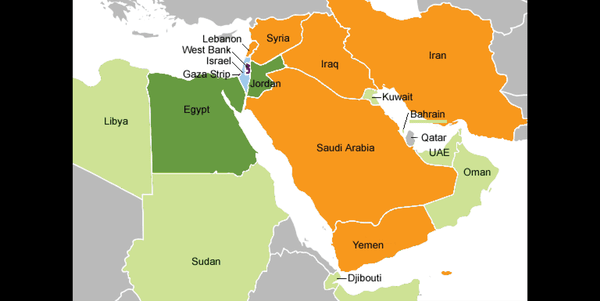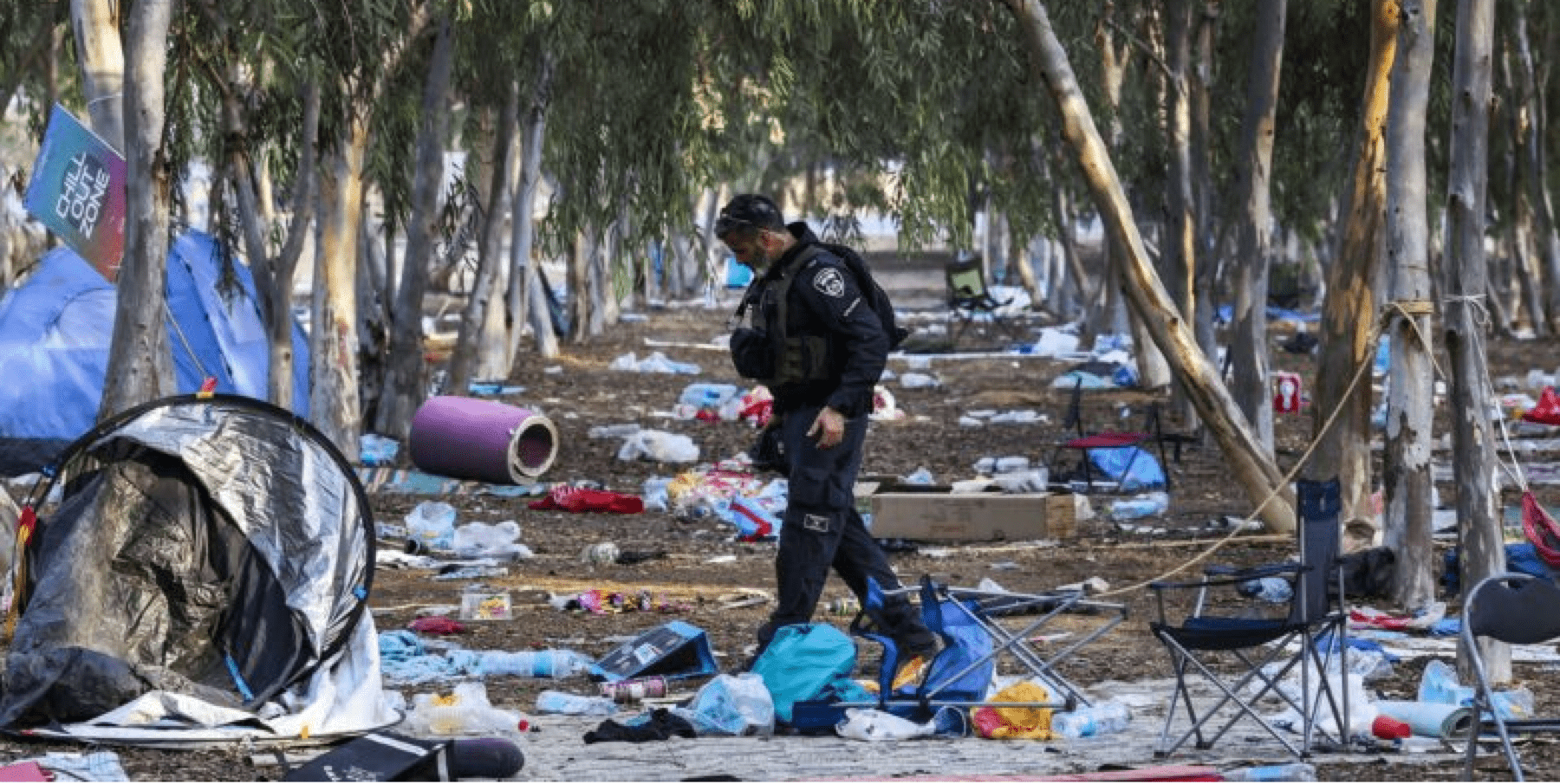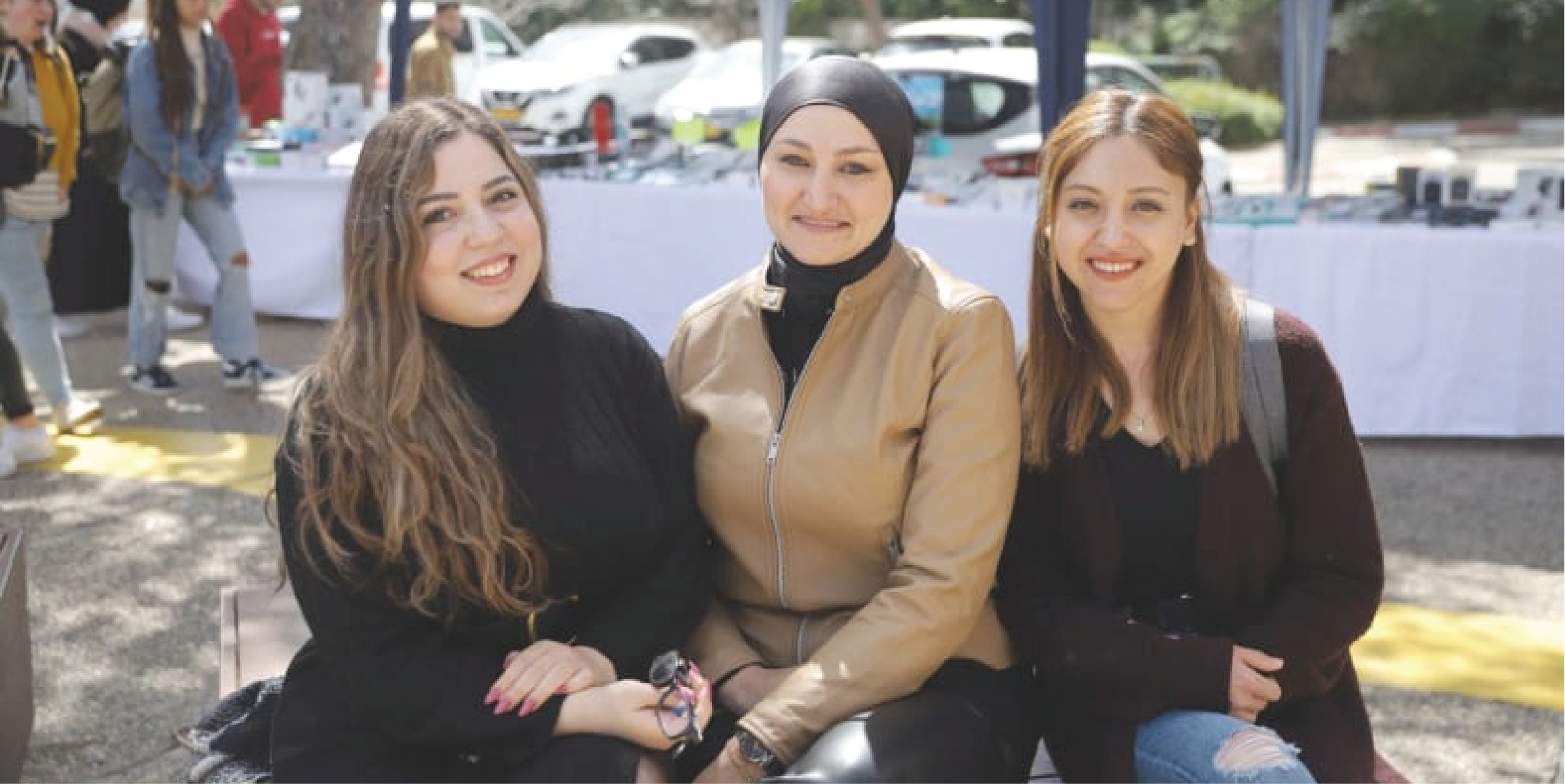The Improbable Happiness of Israelis
May 11, 2016

Global surveys find Israel high on happiness and life-satisfaction rankings—despite threats all around.
The World Happiness Report 2016 Update ranks Israel (Jews and Arabs) 11th of 158 countries evaluated for the United Nations. Israel also shines as No. 5 of the 36 Organization for Economic Cooperation and Development countries on the OECD’s Life Satisfaction Index—ahead of the U.S., the U.K. and France.
How can this be so? Israelis live in a hostile and volatile neighborhood, engaged in an endless conflict with the Palestinians and under the threat of nuclear annihilation by Iran. If you crunch the different components of these indexes, Israel falls much further down the lists. It ranks only 24th in GDP per capita, and comes in at No. 30 of the 36 OECD countries on security and personal safety. Israel has only the 17th-highest per capita income in the world.
But Israelis do not rank as stupid on any index. Israel was the fifth-most innovative country in the 2015 Bloomberg Innovation Index, and a 2014 OECD study ranked it fourth in the percentage of adults with a higher education.
So what explains the Israeli paradox? Do Israelis only become stupid when thinking about their own happiness?
The explanation probably lies in indicators not considered in standard surveys. For instance, a new study by my organization, the Jewish People Policy Institute, looked at pluralism in Israel and found that 83% of Israel’s Jewish citizens consider their nationality “significant” to their identity. Eighty percent mention that Jewish culture is also “significant.” More than two-thirds (69%) mention Jewish tradition as important. Strong families and long friendships stretching back to army service as young adults, or even to childhood, also foster a sense of well-being. All of these factors bolster the Jewish state’s raison d’être.
This year, May 12 will mark the 68th anniversary of Israel’s founding, when a nation was created against all odds. The enormous challenges never eroded Israelis’ energy, or hope.
David Ben-Gurion, the first Israeli prime minister, once said: “We will know we have become a normal country when Jewish thieves and Jewish prostitutes conduct their business in Hebrew.” Well, in this respect Israel has done much better than he could have dreamed: with one ex-president in jail for rape, and a former prime minister locked up for corruption. Israelis find comfort in the fact that the high and mighty are treated the same under the law as common crooks.
Former Prime Minister Ariel Sharon, who died in 2014, once recalled that after finishing a day’s work with his father in their Kfar Malal fields, he had pointed out in frustration how much was left to be plowed. His father, Samuel, told him to turn around and take in how much they had done.
In every aspect of Israel’s existence there is plenty left to be plowed—plenty of room for improvement. Yet Israelis take comfort in looking back and savoring how much has been achieved, how sovereignty over the land of their forefathers was reclaimed. At least 60% of the Israeli population, now eight million, are Jewish immigrants or their children. Jews from more than 90 countries, of all colors and walks of life, are united in one society. They cherish the sense of self-determination.
And it isn’t just Jews. Go to any beach or shopping mall and—despite the frictions—you will see Jews and Arabs peacefully coexisting. They all can take pride in their country’s accomplishments, as when Israel faced a water crisis a decade ago and launched a desalination project that is now the envy of the world.
In 1964, my close childhood friend, Aryeh Argani, a young Israeli Defense Force pilot, was killed in action. Since then I have visited his grave every spring on Independence Day. Three years ago, I got a phone call from his squadron telling me that they had noticed that no one was participating in the official memorials for Aryeh. He had been an only child, and the sorrow destroyed his parents. The squadron had learned that he and I had been friends, and they invited me to attend a memorial for Aryeh. In the pilots’ club of Squadron 103, I found, a corner of the club is dedicated to Aryeh’s memory. His violin rests there.
These kinds of things make Israelis proud and happy. If the global happiness and satisfaction index could measure them, we might get a better grip on the Israeli paradox.
By AVINOAM BAR-YOSEF
Mr. Bar-Yosef is the president of the Jewish People Policy Institute and former chief diplomatic correspondent and Washington bureau chief for the Israeli daily Maariv.
Similar posts
-

Israel Is Held To A Higher Standard Than Any Country
April 25, 2024In the intricate tapestry of global affairs, one nation stands out for enduring scrutiny and condem...
-

Israel Has The Most Moral Military In The World
April 10, 2024In the heart of a region often riddled with conflict, Israel stands out not only for its technologi...
-

The Resilience of the Israeli People
April 2, 2024Visitors from around the world have seen Hamas's October 7th Massacre's destruction in southern Isr...
-

Israel: Small Size, Big Impact
March 21, 2024Nestled along the eastern edge of the Mediterranean Sea, Israel is a land of immense historical sig...
-

Israelis Are Fighting For Their Lives
February 21, 2024By Jonathan S. Tobin The world looks a lot different from Kibbutz Kfar Aza than it does in the U...
-

Over 2 Million Arabs Live In Israel
January 23, 2024In the complex landscape of the Middle East, where diverse cultures and identities intersect, Israe...
-

'Fauda' Star Idan Amedi Injured Fighting in Gaza
January 8, 2024Despite the severity of his injuries, Amedi's father assured Israeli news channels that his life is...
-

Israel Is A Great Country To Live In
December 28, 2023Nestled at the crossroads of the Middle East, Israel stands as a vibrant and dynamic nation, offeri...



















